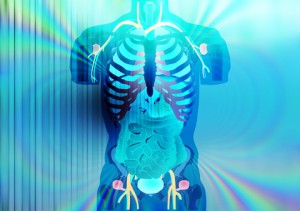Ecstasy Abuse
 Ecstasy dealers often tell their clients that the little pills they sell can help people to feel warm, look great and party all night without feeling even the least bit tired. While accessing a party in a pill might sound fabulous, those who listen to their dealers and take this drug might obtain a much stronger reaction that they ever bargained for. In fact, people who take Ecstasy may have intense reactions that last for days and days, and the changes those reactions bring about could lead to addictions.
Ecstasy dealers often tell their clients that the little pills they sell can help people to feel warm, look great and party all night without feeling even the least bit tired. While accessing a party in a pill might sound fabulous, those who listen to their dealers and take this drug might obtain a much stronger reaction that they ever bargained for. In fact, people who take Ecstasy may have intense reactions that last for days and days, and the changes those reactions bring about could lead to addictions.
From Therapy of Choice to Drug of Abuse
According to an article in the Journal of Psychoactive Drugs, MDMA was created nearly a century ago. When the drug was created, researchers felt confident that the drug could be of use in psychotherapy, as people who were taking MDMA seemed willing to open up and talk, even if these same people had been completely unwilling to share their thoughts in the past. It was a remarkable discovery, but over time, the use of the drug fell out of favor. In fact, the drug fell so far out of favor that it was declared illegal. Researchers could no longer access the drug, and it wasn’t prescribed for either mental or physical ailments. That didn’t stop enterprising dealers from creating Ecstasy, however, and the black market for the drug began to grow and grow. Now, Ecstasy is considered one of the main drugs of abuse in the United States, and it’s easy to see why the drug is so very popular.
People on Ecstasy experience:
- Increased levels of energy
- Euphoria
- Tenderness toward others
- Distortions of visual and tactile experiences
In the past, users of Ecstasy often took the drug in clubs, allowing them to dance and cuddle with their friends while feeling intense experiences they might not be able to access in any other way. Now, the National Institute on Drug Abuse reports that the use of Ecstasy has moved out of the clubs and into the population at large, affecting even more people on a daily basis. These people might not even set foot in a dance club, yet they find the use of Ecstasy to be inherently pleasing.
Addiction on the Rise
 Ecstasy causes a surge of serotonin to permeate the brain, and this surge is responsible for the wide range of symptoms people feel while they’re under the influence. A brain soaked with serotonin isn’t functioning at an optimal level, however, and the brain may make subtle adjustments to reduce its susceptibility to serotonin. As a result of these tweaks, people who take MDMA may find that they only feel normal while they’re on the drug. Without it, they may feel low and depressed. This change might be responsible for the increased patterns of use seen in people who take Ecstasy. In an article about this issue, published in BMJ, researchers report that of 89 people who had used MDMA, 46 had used the drug more than 20 times, 23 had used the drug more than 40 times, and five had used the drug more than 100 times. Of these users, one-third reported taking the drug at least once per week. These statistics can be difficult to parse out, but in essence, they seem to suggest that people who take the drug take it much more often than just once, and some people take it nearly every day. This seems to indicate that the drug causes changes in the brain that lead to addiction. A person who uses the drug quickly loses control over that use, and addiction results.
Ecstasy causes a surge of serotonin to permeate the brain, and this surge is responsible for the wide range of symptoms people feel while they’re under the influence. A brain soaked with serotonin isn’t functioning at an optimal level, however, and the brain may make subtle adjustments to reduce its susceptibility to serotonin. As a result of these tweaks, people who take MDMA may find that they only feel normal while they’re on the drug. Without it, they may feel low and depressed. This change might be responsible for the increased patterns of use seen in people who take Ecstasy. In an article about this issue, published in BMJ, researchers report that of 89 people who had used MDMA, 46 had used the drug more than 20 times, 23 had used the drug more than 40 times, and five had used the drug more than 100 times. Of these users, one-third reported taking the drug at least once per week. These statistics can be difficult to parse out, but in essence, they seem to suggest that people who take the drug take it much more often than just once, and some people take it nearly every day. This seems to indicate that the drug causes changes in the brain that lead to addiction. A person who uses the drug quickly loses control over that use, and addiction results.
In order to meet the criteria for addiction, people must have three or more of the following symptoms at one point within the year prior:
Criteria for Addiction
- A compulsion to take the drug
- An inability to control the use of the drug, either by taking too much or taking it too often
- Symptoms of withdrawal when the user doesn’t take the drug
- A need for higher doses to bring about the same effect once felt by a small dose
- A neglect or disinterest in things the person once loved
- A continued use of the drug, despite evidence that the use is harmful
It’s unknown how many people are currently addicted to Ecstasy, as many people simply don’t admit that they have a problem, and other people may use the drug as part of a pattern of abuse that includes many different types of drugs. But other statistics seem to suggest that Ecstasy use and abuse is on the rise. For example, the U.S. Department of Justice reports that 11 labs that made MDMA were seized in the US in 2009, where none were seized in 2008. This seems to suggest that more people are making Ecstasy, and it might also seem to suggest that more people are taking the drug. After all, the dealers must be selling their products to someone. Similarly, the Substance Abuse and Mental Health Services Administration reports that visits to emergency rooms due to Ecstasy abuse increased from 10,220 in 2004 to 17,865 in 2008. This is a 74.8-percent increase, which again seems to indicate that the use of this dangerous drug is on the rise and causing people a significant amount of distress.
Health Effects of Ecstasy Abuse
 The pleasure felt by people on Ecstasy comes at a terrible price, as the drug can be quite toxic to the delicate tissues of the brain. Over time, as the brain makes adjustments that allow it to function normally, even in the presence of Ecstasy, portions of the brain that deal with memory tend to deteriorate. The chemical explanation for this decline is complex, requiring thousands of words to outline in detail, but in essence, the drug causes portions of the brain to shrink and move a bit slower. People with this damage might not be functioning at a normal cognitive level. For example, in a study in the Journal of Psychopharmacology, researchers found that people who took MDMA recalled only 75 percent of the number of ideas in a memory test, when compared to people who did not take the drug. The damage they experienced as a result of the drug use simply reduced their capacity to remember information, causing abnormal test scores.
The pleasure felt by people on Ecstasy comes at a terrible price, as the drug can be quite toxic to the delicate tissues of the brain. Over time, as the brain makes adjustments that allow it to function normally, even in the presence of Ecstasy, portions of the brain that deal with memory tend to deteriorate. The chemical explanation for this decline is complex, requiring thousands of words to outline in detail, but in essence, the drug causes portions of the brain to shrink and move a bit slower. People with this damage might not be functioning at a normal cognitive level. For example, in a study in the Journal of Psychopharmacology, researchers found that people who took MDMA recalled only 75 percent of the number of ideas in a memory test, when compared to people who did not take the drug. The damage they experienced as a result of the drug use simply reduced their capacity to remember information, causing abnormal test scores.
In a separate study, also published in the Journal of Psychopharmacology, researchers attempted to determine how much people knew about and could understand the damage they had endured due to Ecstasy use. Here, researchers discovered that people who knew they had damage and people who did not had the same level of cognitive impairment. In other words, everyone who took Ecstasy that these researchers studied had impairment, but some people didn’t even know that any damage had occurred. As a result, some people who take this drug may have deficits, but they might not even realize the deficits are occurring.
Free. Easy. Confidential.
Call Today: 1-800-469-9124
Who Answers?We have caring admissions counselors available 24/7
In addition to causing changes in serotonin levels, Ecstasy also causes changes in norepinephrine levels in the brain and in the body. This chemical is involved in helping the heart beat at a regular rate, and disruptions in levels of this chemical can be disastrous. According to an article published in JAMA, Ecstasy has been associated with deaths in people who take the drug, as it can cause a rapid, irregular heartbeat to develop. People who have underlying heart conditions are most at risk for this terrible side effect, but it could happen to almost anyone who uses the drug.
Ecstasy can also cause people to feel more attractive, and it can cause them to take risks they might not normally take. People on the drug might engage in risky sexual encounters, placing them at risk for sexually transmitted diseases such as HIV/AIDS or hepatitis. Women might also become pregnant, if they engage in sexual activity without taking proper precautions to prevent a pregnancy from developing.
Getting Help
 People who attempt to stop taking stimulants like Ecstasy often develop crushing symptoms of depression that won’t seem to clear or abate, no matter what else seems to be happening in the world around them. It can be hard to function in this environment, and get motivated to ask for help. People who feel this low and feel sad might find it easier to simply pop another tablet of Ecstasy, as the drug might allow them to feel immediately better and able to move forward with the day. The withdrawal symptoms keep them from seeing that other options are available to them.
People who attempt to stop taking stimulants like Ecstasy often develop crushing symptoms of depression that won’t seem to clear or abate, no matter what else seems to be happening in the world around them. It can be hard to function in this environment, and get motivated to ask for help. People who feel this low and feel sad might find it easier to simply pop another tablet of Ecstasy, as the drug might allow them to feel immediately better and able to move forward with the day. The withdrawal symptoms keep them from seeing that other options are available to them.
Families can help by holding an intervention for addiction, when they see that Ecstasy use and abuse has become a significant problem. Here, the family can provide specific information about addiction, and they can present details of the Ecstasy use they’ve seen in the person they love. This conversation can be difficult to hold, as people who are addicted often don’t like to discuss their issues, and people on Ecstasy might be simply too depressed to even think about starting the hard work of therapy, but by remaining firm and working directly with the addicted person, families can push past the sadness and denial and get the person into a reputable treatment program.
At The Orchid, we’re happy to work with families who are planning an intervention. We can start the enrollment process over the phone, ensuring that all of the paperwork has been prepared and the person can simply enter treatment, as soon as the talk is over. We’re known for providing revolutionary care to women struggling with addiction, and we’d like to help your loved one to get better. Please call us to find out more.
Further Reading